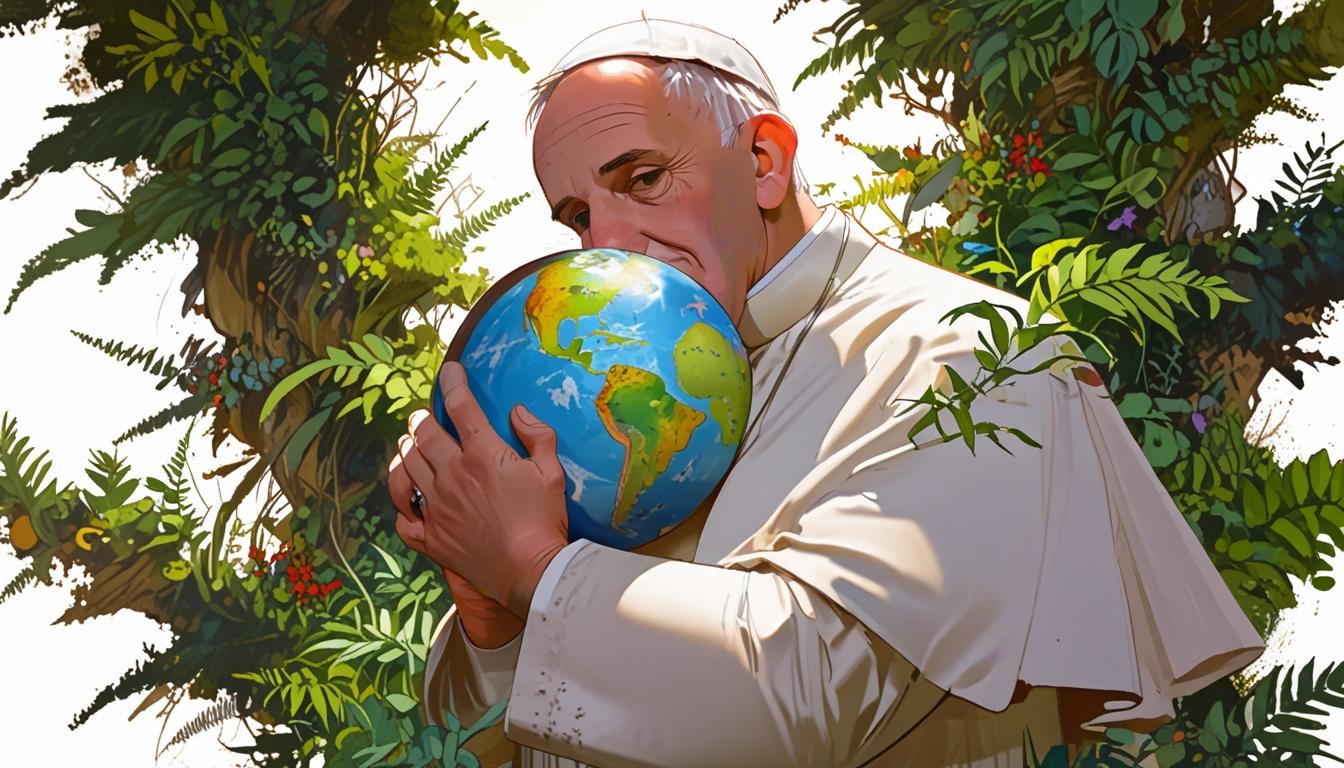The world is mourning the passing of Pope Francis, a figure widely recognised for his impactful contributions to environmental advocacy and the reform of the Catholic Church. He died shortly before World Earth Day on 22 April, marking the end of a papacy distinguished by his unique commitment to ecological and social issues.
Born Jorge Mario Bergoglio in Buenos Aires, Argentina, in 1936, Pope Francis made history in numerous ways. He was the first pope from the Society of Jesus (Jesuit Order), the first Latin American pope, the first from the Southern Hemisphere, and notably, the first to bring a distinct environmental consciousness to the papacy, earning him the moniker of the “Green Pope.” Chosen by his fellow cardinals on 13 March 2013, he took the name Francis after Saint Francis of Assisi, the patron saint of the environment, animals, and birds.
Pope Francis’s papacy was marked by simplicity and humility. In his final testament, he requested to be buried in the Basilica of Santa Maria Maggiore, outside the Vatican, a break from tradition last seen when Pope Leo XIII was buried outside the Vatican in 1903. He requested to be “buried in the earth, simple, without particular decoration,” with only his papal name in Latin, Franciscus, inscribed on his grave.
Throughout his tenure, Pope Francis introduced several reforms aimed at inclusivity and humility within the Church. He adopted practices such as washing women’s feet during Easter rituals and expanded roles for women within the Church. His approach brought a more approachable and compassionate tone to the papacy.
Environmentally, Pope Francis was a pioneering voice. Early in his papacy, he underscored the Church’s ongoing presence and responsibility in regions like the Amazon Basin, emphasising care for indigenous peoples and the environment. On 12 February 2020, he published Querida Amazonia (“Dear Amazon”), appealing for the protection of the Amazon rainforest.
His 2015 encyclical Laudato Si’ became a landmark document calling humanity to address environmental degradation and climate change. Drawing from Saint Francis of Assisi’s prayer, he described the Earth as “a sister with whom we share our life and a beautiful mother who opens her arms to embrace us.” The encyclical highlighted the urgent dangers posed by climate change and the need for responsible stewardship of the planet.
Pope Francis was vocal about climate change’s significance, calling it “a global problem with grave implications.” He championed ecological responsibility in the lead-up to the 2015 Paris Climate Accord and in 2019 described ecocide as a sin, lamenting its destructive impact and advocating for its recognition as an international crime. That same year, he called for a radical energy transition to safeguard the planet’s future.
His engagement with social issues also extended to more controversial domains. Notably, he expressed empathy towards the LGBTQ community, declaring that the Church would henceforth bless same-sex couples, a stance that sparked diverse responses worldwide.
Pope Francis’s environmental and social perspectives continued the legacy of his predecessors. Pope Benedict XVI, in 2010, emphasised creation’s sacred nature and the imperative of its preservation for humanity’s peaceful coexistence. Pope John Paul II had designated Saint Francis of Assisi as the patron saint of ecology and encouraged what he termed “ecological conversion” to raise awareness of humanity’s environmental impact.
As plans for Pope Francis’s burial proceed this Saturday, world leaders and communities are reflecting on his legacy. American President Donald Trump announced his intention to attend the funeral in Rome, describing the late pope as “a good man” and ordering the American flag to fly at half-mast in his honour.
The late Pontiff’s commitment to simplicity, inclusion, and environmental stewardship has left a significant imprint on both the Church and global conversations about climate and social justice. His papacy symbolised a green trajectory for the Catholic Church, blending spiritual leadership with urgent calls for ecological responsibility that have resonated worldwide. As the Vatican prepares for the election of his successor, many hope that this direction will continue, carrying forward the principles Pope Francis championed during his time as the spiritual leader of millions.
Source: Noah Wire Services
